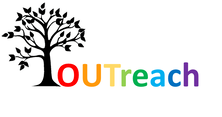BROADENING INCLUSION AND DIVERSITY IN SCIENCE
|
Scientists pride themselves on their clinical, unbiased, and apolitical pursuit of the truth. Unfortunately, this approach often suppresses important discussions of experience and identity, leaving many developing scientists to feel unwelcome or unsure in science. This can lead to the exclusion of important minorities in scientific research. As a result, scientific advancement suffers, because inclusion of diversity in both experience and perspective ultimately begets diversity in lines of inquiry and approach.
Many people do not view queer identities as minoritized in science (if this is you, please see this peer-reviewed systematic study of LGBTQ+ outcomes in STEM fields accross levels), but as a queer scientist, I experienced these feelings first-hand during my training years, and sometimes still grapple with them now. To address these issues within my own community, I created a bi-monthly seminar series at my graduate university, UCSB. This seminar aims to address this problem by increasing LGBTQ+ visibility and representation in the sciences through the creation of an inclusive space that regularly highlights the research of LGBTQ+ graduate students, postdoctoral researchers, and faculty in the earth and life sciences. By recognizing and promoting the achievements of LGBTQ+ scientists at UCSB, we aimed to confirm for LGBTQ+ undergraduates that a career in science is not only possible for, but welcoming to all sexual and gender identities. This is something I hope to re-establish at any university. |
|
While the queer community is of personal importance to me, inclusion of racial and ethnic diversity is equally important to scientific progress. Unfortunately, racial and ethnic minorities are less likely to pursue careers in scientific research. This is in part due to inequality in primary education due to socioeconomic differences. As a college educator, I feel it is important to address the inequity in educational background in the classroom, so that all students have the opportunity to succeed. I achieve this through collaborative, peer driven, group work in my classrooms. Specifically, I encourage students to work together to form hypotheses and design experiments to test them. During these activities, I leverage the diversity within my classroom to encourage students to fill each other’s gaps in knowledge, ultimately bridging the gap in educational background.
For me, undergraduate experience with biological research at a professional level was a deciding factor in my decision to pursue a career in research and academia. Assuming this holds true for other students, recruiting minorities for participation in laboratory research is an important step to broadening diversity in science. Accordingly, I strive to recruit students with diverse backgrounds in the lab, and am exceedingly flexible in scheduling and work load to accommodate any student with a sincere interest in pursuing academic research in my field of interest. I plan to work with existing university clubs and groups for minoritized students in order to successfully reach and recruit students from diverse backgrounds. While funding for academic research is not always guaranteed, I plan to pursue funding to support undergraduate interns who may need to work to support themselves during their college years, and I plan to pursue the development of greater programs to provide such support for students at my home university throughout my career. |



